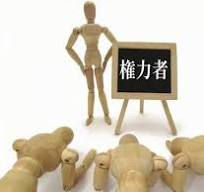Full of Energy with Same Numbers: The Origin of Seasonal Festivals.
- 弓長金参
- Apr 28, 2025
- 3 min read
March 3rd is Girls' Festival, or Hina Matsuri. It is a same numbers days, coinciding with May 5th being Boys' Festival.

The custom of holding events on same numbers days comes from the ancient Chinese theory of Yin-Yang and the five elements.
Yin-Yang refer to Yin or Yang energy that all things possess. It was believed that the world could be maintained in harmony with Yin and Yang. The five elements, Water, Fire, Wood, Metal, and earth, represent the idea that the world is made up of these five elements.

Based on this, odd numbers were considered to be Yang, and even numbers were considered to be Yin.
According to one theory, even numbers that divide are stable and quiet, so they are Yin, while odd numbers that do not divide are Yang, because they move unstably.
The odd-numbered days of the Yang month were considered to be auspicious because of the double Yang, and also considered to be days to ward off evil spirits that would destroy the harmony of all things if the Yang was too strong.
Either way, it is a date that people pay attention to as it marks the change of seasons, and the custom of holding events at this time is born.
January 1st is, of course, New Year's Day.
In Japan, the unique custom of eating rice porridge with seven herbs seven days later was born.

March 3rd is called Shangsi Festival in China, and the custom of purifying oneself in the river has evolved into a picnic event for everyone.
When it was introduced to Japan, the custom of throwing Hitogata down the river to ward off evil spirits initially evolved into an event during the Heian period when aristocrats would decorate dolls and hold celebratory banquets.
During the Edo period, the custom of displaying dolls spread among the common people, and became established as a festival for girls.
May 5th is the Dragon Boat Festival.
There are various theories about its origin, including that it is a festival to mourn the death of Qu Yuan, an ancient Chinese poet.

In China, the customs of eating rice dumplings, drinking iris medicinal herbs, and racing in dragon-shaped boats developed in hopes of staying healthy.
When it was introduced to Japan, the key word iris(Japanese: Shobu) became associated with martial arts(Shobu) and competition(Shobu), and it became a custom to decorate military equipment, especially in samurai society.
During the Edo period, society as a whole prayed for the growth of boys, and it evolved into a boys' festival where armor, helmets, carp streamers and other decorations were displayed.
As you know, July 7th is Tanabata.
Just like the story of Orihime and Hikoboshi, there are customs in different regions of China of eating dumplings and fruit in hopes of meeting a wonderful partner.

The custom of praying for improvement in weaving skills in honor of Orihime evolved into a prayer for improvement in handicrafts in general.
When it was introduced to Japan, people began to pray for all sorts of things regardless of category.
September 9th is known as the Chrysanthemum Festival in China, and on this day people visit graves and shrines to pray for happiness and longevity. Later, the nuance of Respect for the Aged was added, celebrating the health and longevity of the elderly.

In some regions of Japan, on this day there are customs of admiring chrysanthemums and eating chestnut rice.
So what about the rest of November 11th?
There are no particular traditional events. Since numbers with more than two digits are combinations of single digit numbers, perhaps people didn't pay much attention to the days when the numbers were repeated.
However, in recent years in China, November 11th has become a popular day for singles called Singles' Day, and it has become popular for young people to hold events on that day.

It is said that a party held on this day for male students without girlfriends at a university in China spread nationwide. The number 1 certainly brings to mind single people, and November 11th, which has many 1s in it, is a day when single people gather.
Incidentally, this day is known as Pocky & Pretz(Japanese snacks ) Day in Japan.


